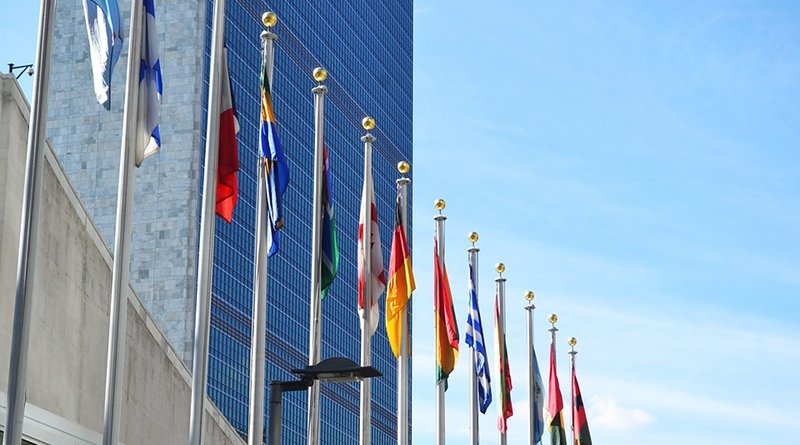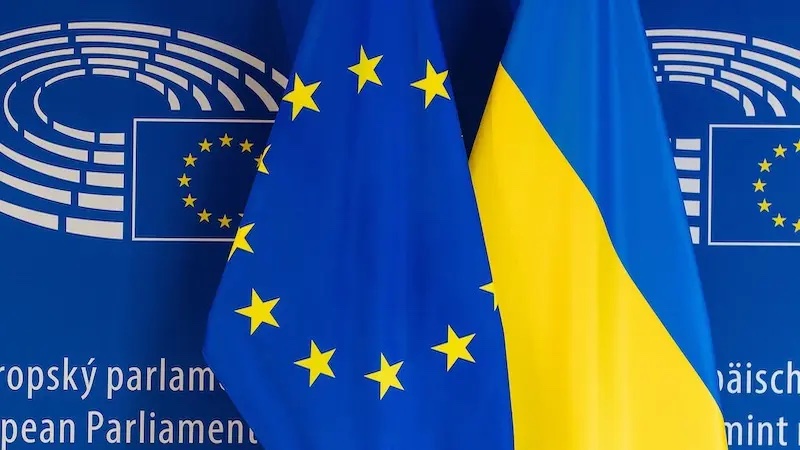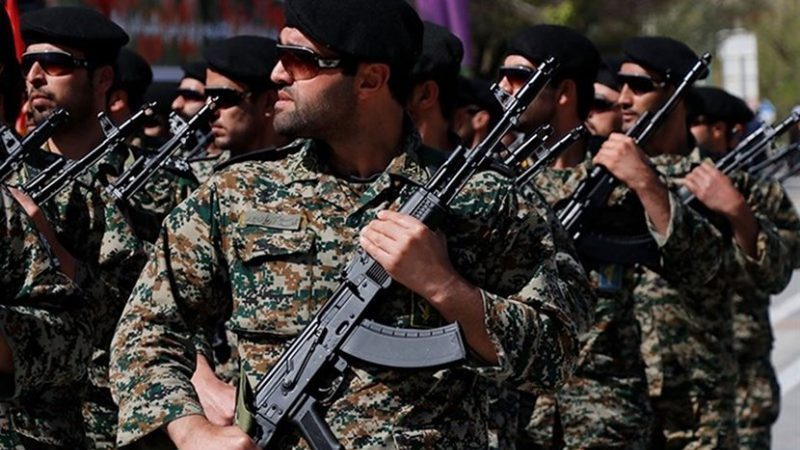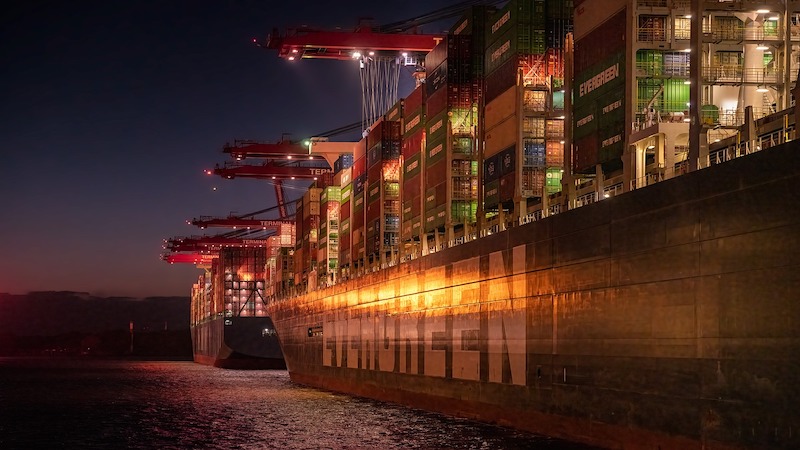Learn more about sponsor message choices: podcastchoices.com/adchoices
Day: June 23, 2024
NPR News: 06-23-2024 8PM EDT

By Wanjiru Njoya
Although Harry Frankfurt was not a libertarian, his critique of egalitarianism reflects the principles of liberty. Frankfurt argued that “economic equality is not, as such, of particular moral importance” and that “if everyone had enough, it would be of no moral consequence whether some had more than others.”
This has been described by David Gordon as, “an argument that most people who read Mises Institute articles will know already. In brief, the argument is that what matters to someone is how well he himself is doing. So long as a person has enough to lead a satisfying life, why should it matter whether there are other people who have more?”
Another of Frankfurt’s essays—his;critique;of sophistry, deceit, lies, and other forms of humbug—is also helpful in understanding why the egalitarian;schemes;of the “notorious Frankfurt School”;of cultural Marxism continue to prevail even though they are repeatedly debunked. It adds to our understanding of why people continue to promote socialist ideals despite knowing that they have never worked and cannot work. Similarly, it helps to explain why the tide of wokery continues to swell despite widespread popular opposition to it.
One reason why wokery proliferates is the relentless promotion of what Frankfurt calls “humbug,” “balderdash,” “claptrap,” “hokum,” “drivel,” “buncombe,” “imposture,” or “quackery.” Frankfurt describes humbug as a “lack of connection to a concern with truth.” The essence of humbug is not merely that it happens to be false, or that it is unsupported by facts, but that it is deliberate;fakery: “It is not that it is;false;but that it is;phony.”
Frankfurt devotes much of his analysis to the distinction between what is false (built on a lie) and what is fake by design: nobody has been lied to because everyone knows that it is fake. We all know wokery is a load of hokum. Frankfurt emphasizes that “although [humbug] is produced without concern with the truth, it need not be false.” Moreover, it is not necessarily careless. On the contrary, it is often carefully and deliberately crafted not with an intention to deceive but with the intention of constructing a phony façade behind which further fake schemes can be implemented.
One might ask why it matters whether humbug is intended to deceive or not—after all, the fact that it is humbug should suffice as a good reason to reject it altogether. The important insight from Frankfurt’s analysis is that it tells us what type of battle against wokery is likely to succeed. Precisely because this type of;fakery;is impervious to both truth and facts—the fact that deceit is not central to its purpose—means that it cannot be vanquished simply by exposing the elements of it that are deceitful or untrue, or by showing that it is based on an incorrect grasp of the relevant facts.
Lies, by contrast, would be a more straightforward threat to contain. Lies can be defeated by simply pointing to the truth. The essence of the lie, as Frankfurt explains, is an intention to deceive: “The liar is inescapably concerned with truth-values. In order to invent a lie at all, he must think he knows what is true. And in order to invent an effective lie, he must design his falsehood under the guidance of that truth.”
This means that a mere case of telling lies can be countered effectively by pointing out the correct facts. People do not like being lied to and will not go along with a scheme that they know to be based on an outright lie, nor will they accept the edicts of a known liar. There is, as Frankfurt notes, a sharp consequence to being caught in a blatant lie, as the lie (and the liar) will be summarily rejected.
The phony, by contrast, often gets away with his façade, as his case does not stand or fall based on any specific lie. Lies that are merely incidental to his purpose will be debunked without toppling the phony. Thus, wokery continues to march forward no matter how many woke lies are debunked. A good example is the phony ideology of gender promoted by so-called gender-inclusive feminists. Some people suffer from gender dysphoria—they inform us—and some people are born intersex. There are;some;elements of truth in that. On that basis, these phonies have constructed a façade behind which schoolchildren are encouraged by their teachers to identify as a different gender, choose a new name for themselves, and keep it secret from their parents. The social and psychological trauma caused to children by such gender schemes is inevitably excused by saying that its promoters had “good intentions” and were not trying to deceive anyone but simply trying to help all the children feel welcome and included.
The important point to draw from Frankfurt’s analysis of humbug is that unlike liars, wokies cannot be thwarted merely by informing people of the truth. Campaigners who have tried to exclude gender ideology from the school curriculum have discovered that simply exposing the pornographic books that children are encouraged to read in school makes no difference. Parents are shocked and appalled, but the;World Health Organization;recommends that children as young as four should be taught about gender and sexuality. So even if specific books are banned from libraries, the wokery carries on. The phony façade behind which it flourishes is well-entrenched and impervious to whistleblowers.
If wokies merely promoted ideas they knew to be false, that would make them vulnerable to having their lies exposed. In the example of gender ideology, those trying to highlight statistics about the insignificant numbers of people who suffer from gender dysphoria—too few to justify overhauling the school curriculum—are whistling into the wind because statistical analysis plays no role in humbug. The crucial point Frankfurt makes about the purveyor of humbug is that he attaches no significance to whether, or to what extent, his humbug is based on truth or lies: “The truth-values of his statements are of no central interest to him; what we are not to understand is that his intention is neither to report the truth nor to conceal it.”
The argument being made here is not that wokies never tell lies, nor that debunking their lies is a pointless exercise, but that the hegemony of woke ideology does not attach significance to whether its tenets are true or false. It is constructed on intellectual foundations in which there is no such thing as objective truth or objectively true principles. The point being made here is, rather, that the lies wokies tell are merely incidental to their primary goal and so debunking their lies will not, in itself, thwart them in the pursuit of their primary goal.
What is important to the woke is not that people should necessarily be deceived by their arguments but that people should go along with the phony façade they construct. In the example of the phony woman, we may not believe that women have penises—and indeed, we are not required actually to believe it—but the law now recognizes them as women and protects them from being discriminated against based on their gender identity or their putative sex. Similarly, decolonizers do not care whether their narrative is based on truth or correct facts. Everybody knows that 2 + 2 does not equal 5, but mathematics is being decolonized regardless of that. The phony narrative itself is the point, and the decolonizers’ goal is not to deceive people into thinking 2 + 2 equals 5 but to get away with dismantling the natural sciences. Those who repeatedly point out that 2 + 2 equals 4 are, in the battle against wokery, on a hiding to nothing.
The ultimate aim of wokery is to seize and maintain power by any means necessary. In purveying humbug, the aim of wokery is to entrench the new culture. Frankfurt says that “what [the purveyor of humbug] does necessarily attempt to deceive us about is his enterprise. His only indispensably distinctive characteristic is that in a certain way he misrepresents what he is up to.” In this context, what he is up to is nothing less than the destruction of Western civilization, as civilization is built on principles inimical to the antihuman ideology of wokery.
As Frankfurt says, “However studiously and conscientiously the [phony] proceeds, it remains true that he is also trying to get away with something.” In the case of wokery, the phony is trying to get away with dismantling civilization itself while we play whack-a-mole debunking all the random lies he leaves behind in his wake.
This then is the real threat from wokery, of which sight may be lost in the daily drama of the latest outrage. Recently, it was;reported;that Canadian taxpayers will fund a man who identifies as “female dominant” to have surgery in Texas described as “a penis-sparing vaginoplasty.” This surgery is said to be required by the Human Rights Code so it will be publicly funded. Regardless of whether the ideology is true or false, Ontarians will be paying for it.
But such outrageous cases are a mere sideshow that should not distract our attention from the overriding goal of the woke—namely, to get away with it. The promoter of humbug “does not care whether the things he says describe reality correctly. He just picks them out, or makes them up, to suit his purpose.” He does not care whether he is fact-checked or not, as long as he remains in control of the school curriculum, the public purse, and all the institutions that he now commands.
- About the author: Dr. Wanjiru Njoya is a Scholar-in-Residence for the Mises Institute. She is the author of Economic Freedom and Social Justice (Palgrave Macmillan, 2021), Redressing Historical Injustice (Palgrave Macmillan, 2023, with David Gordon) and “A Critique of Equality Legislation in Liberal Market Economies” (Journal of Libertarian Studies, 2021).
- Source: This article was published by the Mises Institute

By Kung Chan
The League of Nations, also known as Société des Nations in French, was founded on January 10, 1920. Emerging after World War I and as a result of the Paris Peace Conference, it operated as an intergovernmental organization. Its pioneering role marked it as the first global body dedicated to the maintenance of world peace, a predecessor of the United Nations.
The purpose of the League of Nations, as stated in the Covenant of the League of Nations, included preventing war through collective security and armament control, as well as settling international disputes through negotiation and arbitration. Similar to the United Nations today, the League of Nations and other treaties of its time also addressed labor conditions, fair treatment of indigenous peoples, trafficking of drugs and arms, public health, treatment of prisoners of war, and protection of minority groups in Europe. At its peak from September 28, 1934, to February 23, 1935, the League of Nations had 58 member states.
Generally, it is believed that the thinking embodied by the League of Nations reflected a fundamental shift in global diplomatic practices over centuries. However, it is widely acknowledged that the organization lacked its own armed forces, relying instead on major powers of the time to enforce its resolutions, maintain economic sanctions, or provide military forces when necessary, which these powers were not always willing to do. Economic sanctions could also harm the League of Nations’ own member states, thus these countries were sometimes unwilling to cooperate. The United States did not join it due to the Senate’s rejection of the Treaty of Versailles.
During the Second Italo-Ethiopian War, the League of Nations accused the Italian military of targeting medical tents of the International Red Cross and Red Crescent Movement. The Italian dictator Benito Mussolini responded with the saying, “the League is very well when sparrows shout, but no good at all when eagles fall out”.
From a historical realist perspective, the key to international organizations lies in the responsibility of great powers to enforce decisions. This principle has remained unchanged from the past to the present. Between the geopolitical stage and effective control, there remains a vast gap.
In fact, today’s United Nations faces similar, if not more serious, issues. Major world powers are severely marginalized in the popular concept of progressivism, turning the United Nations into a mere stage for geopolitical farce. More critically, such a United Nations significantly increases costs for all countries, especially Western ones, to levels approaching unacceptable for these major powers. Therefore, I believe it is nearly time for restructuring the United Nations.
The rationale is straightforward: within this international organization, Western nations are increasingly marginalized. The other factions within the United Nations voice their objections, the closer we approach a restructuring. The League of Nations offers a historical precedent. Should Donald Trump assume office and serve two terms, a substantial overhaul of the United Nations could become inevitable. While current discussions focus on Trump’s policies, such a transformation would represent a realistic and pivotal policy shift.
As the United Nations approaches nearly 80 years of history, its largest restructuring yet is imminent, and this is something worthy to be paid attention to.

By Alexandra Brzozowski
(EurActiv) — Ukraine’s Western allies are racing to carry out freshly made decisions on long-term aid for Kyiv amid fears of Hungarian vetoes and Trump’s potential re-election curtailing US support.
Two years after Ukraine, and Moldova applied for EU membership, both will;officially open accession talks;in Luxembourg Tuesday (25 June) by holding the first Intergovernmental Conferences (IGC), that formally kick-start a process that could take many years.
EU officials had been sceptical whether the decision could be taken before Hungary takes over the EU’s rotating presidency on 1 July.
The step serves as a morale boost for Ukraine which is preparing for Russia’s summer offensive, and has had to fend off fresh military advances and the opening of a new front in the northeastern border region of Kharkiv, home to Ukraine’s second largest city.
In his nightly video address on Saturday (22 June), Ukraine’s President Volodymyr Zelenskyy said Russian forces had used more than 2,400 guided bombs on Ukrainian targets in June alone, with about 700 aimed at the war-torn city.
For military experts, the question remains whether Russia aims to create a buffer zone or to push deeper, and if Ukraine’s Western allies can provide what it needs in the long-term, despite political difficulties.
Those include a yet unclear EU insitutitonal set-up, the potential return of former US President Donald Trump to the While House in November or France’s snap elections which could see the far-right score record numbers.
EU leaders are also expected to back more military aid to Ukraine, especially to protect the country’s constantly targeted infrastructure and power grid.
“As Ukraine exercises its inherent right to self-defence, the European Council calls for stepping up the delivery of military support to Ukraine,” an early draft of the leaders’ summit communiqué states.
“In particular, air defence systems, ammunition and missiles are urgently needed to protect Ukraine’s population and critical energy infrastructure,” it adds.
As part of;a wider Western effort;to help the country combat Russia’s aggression, Zelenskyy is expected to sign a bilateral;security deal;between the EU and Ukraine this week, EU diplomats confirmed.
EU leaders are also expected to approve the transfer of windfall profits earned from immobilised Russian assets to Ukraine.
They could task EU officials to further explore the plan to provide Ukraine with a large up-front loan worth “approximately” €50 billion “to support Ukraine’s current and future military, budget and reconstruction needs” and secure Kyiv’s financing for the next year.
G7 leaders last week struck a political agreement;on the issue, but technical details were to be finalised in the coming weeks, with the new cash expected to reach Kyiv by the end of this year thanks to contributions from all G7 countries.
It remains yet unclear who would raise the money – the US or the EU.
Under the first option, supported by a majority of EU member states, Washington would raise the money on the market and Brussels would give assurances the windfall profits would be available to service the US borrowing.
This faster option would not create any new obligations for European countries in terms of joint debt. However, it remains unclear under what conditions risk-sharing would happen and any changes to the EU’s sanctions regime EU officials fear could be vetoed by Hungary.
Under a second option, the EU would borrow the money for Ukraine on its own, guaranteeing the repayment of bonds with money from the EU budget.
While the process would be EU-led, it would take longer as it would require parliamentary consent, which could take many months depending on how quickly the newly-elected European Parliament begins work. Plus, the risk associated with the joint EU borrowing is particularly disliked by Germany.
Hungary has said it wants the Russian frozen assets issue discussed by EU leaders at this week’s summit. They are also expected to address the;Hungarian vetoes on the various files, including the bloc’s further military aid.

The Canadian government has finally listed the Islamic Revolutionary Guards Corps (IRGC), the main arm of repression, warmongering, and exportation of terrorism of Iran’s regime, as a terrorist organization.
The;Canadian Minister of Public Safety, in announcing this decision said;the action “sends a strong message that Canada will use all of the tools at its disposal to combat the terrorist entity of the IRGC.
“The Iranian regime has consistently displayed disregard for human rights, both inside and outside of Iran as well as a willingness to destabilize the international rules-based order.”
Simultaneously with the approval of the IRGC’s listing, freedom-loving Iranians in various Canadian cities welcomed the approval of this resolution aimed at isolating the mullahs’ terrorist dictatorship globally, through demonstrations and expressions of joy.
This action by Canada quickly made headlines worldwide, reflecting how global public opinion, thanks to the revelations by the Iranian resistance, is aware of and sensitive to the role of the Iranian regime and the IRGC in international terrorism. This action coincided with the arrest of a suspect in the shooting of Professor Alejo Vidal-Quadras, a prominent supporter of the People’s Mojahedin Organization of Iran (PMOI/MEK) and the Iranian Resistance, last November in Madrid, Spain. This event demonstrates how the IRGC, as a state organization, extends its reach into the heart of Europe and across the world, from America to Africa and Asia, threatening the lives of citizens in these countries.
The Canadian government’s decision to list the IRGC has provoked anger and fear in the mullahs’ regime. The regime’s Foreign Ministry spokesman, Naser Kanaani hastily reacted by calling the move a “political, unconventional, and unwise action” and an “assault on the mullahs’ sovereignty,” threatening that “Iran reserves the right to respond to Canada’s hostile action.” Everyone knows that such statements from a notorious terrorist regime mean nothing but hostage-taking. Thus, the Canadian Foreign Minister emphasized that Canada’s action to hold the Iranian regime accountable was very important, adding, “Of course, the risk of arbitrary detention of Canadian citizens by this regime increases. We again urge all Canadian citizens to avoid traveling to Iran and those currently there to return to Canada.”
The regime’s fear of the Canadian government’s action is understandable, as this action was taken in response to a resolution by the Canadian Parliament. This trend has been ongoing in European countries and the United States. Parliamentary resolutions and statements by lawmakers in these countries to compel their governments to list IRGC have been influenced by the tireless efforts of freedom-loving Iranians, supporters of the resistance, and parliamentary conferences held to pursue this long-standing demand of the Iranian Resistance.
A look at the demonstrations and conferences held in the past couple of months and last year, or the demonstrations marking the anniversary of the anti-monarchy revolution in February 2023, held in the harshest cold in Canadian cities, during which the call for the IRGC’s terrorist listing resonated, clearly shows this trend. This is the same trend that has been ongoing in Europe, and in addition to national parliamentary statements and resolutions, has so far led to two powerful resolutions for the IRGC’s listing in the European Parliament.
Last May, at a European Parliament session where the second resolution for the IRGC’s terrorist designation was approved, Parliament members strongly challenged the European politicians’ policy of appeasement and delay in fulfilling this demand.;Guy Verhofstadt, Member of the European Parliament and former Prime Minister of Belgium, addressing Josep Borrell, the EU’s High Representative for Foreign Affairs, said, “We don’t like your strategy. We want you to change your strategy. Your strategy of diplomacy and appeasement leads to nothing at all; it does nothing at all. So, this Parliament asks you to change the strategy, based on real sanctions against the leadership of Iran first. Secondly, recognize the Revolutionary Guard as a terrorist organization. I don’t understand why you don’t do it. ;And finally, don’t continue with diplomacy towards the regime. It’s time to recognize the opposition and to have direct contact with them. They are the real representatives of the Iranian people.”
Listing the IRGC as a terrorist organization has been a long-standing goal of the Iranian Resistance, dating back four decades, and has been emphasized in many speeches and messages by Maryam Rajavi, the President-elect of the National Council of Resistance of Iran (NCRI).
Mrs. Maryam Rajavi, after the announcement of the IRGC’s listing by Canada on June 19, 2024, said, “Canada’s designation of the IRGC as a terrorist entity is a commendable step, deserving congratulations to the parliament and government of Canada.
The Iranian Resistance has been advocating for this designation for years. This measure is essential in response to four decades of suppression, terrorism, and warmongering by the regime.
The people of Iran, along with majorities in 28 parliaments worldwide, demand that the regime’s leaders be held accountable for executions, massacres, genocide, crimes against humanity, the suppression of women, and the oppression of national minorities in Iran.”

By EAF editors
Though the US presidential election still has some way to go, it’s hard to imagine that a more ridiculous idea will be floated than Donald Trump’s recent;proposal to replace the US income tax with import tariffs. The idea would almost certainly never make it through the US Congress even if, as is;looking increasingly likely, Trump wins the presidency.;
Like many harebrained ideas, Trump’s is based on a partial and misremembered version of history, in which the United States of America grew to industrial prominence thanks to its protectionism. It is certainly true that of all the major industrialisations of the past two centuries, America’s was the least dependent on foreign trade, and for a long time the federal budget was financed almost entirely by tariff revenue. Even in the nineteenth century, though, tariffs were never exorbitantly high, and their revenue did not have to finance the large military and social security system that the income tax now does.
The world and the United States, to put it mildly, have changed drastically since then. The United States is no longer a large agrarian economy looking to reach the technological frontier; it is at that frontier. Modern manufacturing is infinitely more complex, and the idea that any one country could competitively produce everything it wants to consume is a mirage.
A milder form of this delusion is still influential among those who remember the shortages of the early days of the COVID-19 pandemic and the severing of energy trade between Russia and Europe, and who call for an inward turn to reduce the vulnerability of national supply chains. The fear is not entirely unfounded: there is a limited range of goods which a country would not want to be without for too long. There may be a limited number of cases where stockpiling them to avoid that risk is also not feasible, and support for a residual domestic manufacturing capacity is justifiable. A;report from Australia’s independent Productivity Commission;suggested, for example, that certain chemicals used in the manufacture of medicine might be considered both vulnerable and critical.
Overwhelmingly, though, markets responded remarkably quickly and efficiently to the enormous strain of lockdowns and the Russia–Ukraine war. The overegged predictions of industrial collapse in Europe — often peddled by lobbyists who wanted to avoid the imposition of sanctions — were disproven because the vast majority of firms were agile enough to secure substitutes for Russian gas, to switch to alternative technologies or to import gas-intensive inputs from abroad.;
It was precisely because of Europe’s openness to the global economy that a more serious slowdown was averted. Major European firms were able to leverage their international networks, importing energy-intensive inputs from other installations;elsewhere in the world.;
This is not to suggest that these adjustments were costless, only that it is false to consider that complex international supply chains are necessarily a vulnerability, rather than a form of insurance. Particularly as the effects of climate change intensify, the danger of trying to produce everything you consume within your own borders will become increasingly clear.;
Of course, insurance via geographical diversification is only a viable strategy if there are rules to provide certainty to firms that their inputs can easily flow across national borders. Since the Second World War, that institutional framework has been supplied by the General Agreement of Tariffs and Trade (GATT) and its successor, the World Trade Organization (WTO). Though its rhythm of regular ‘rounds’ of liberalisation agreements has stalled since the failure of the Doha Round, which was launched in 2001, it has made significant progress on more limited fronts, including a trade facilitation agreement in 2014.
The WTO is the closest thing the global economy has to a traffic cop. Its rules are not always respected to the letter, but historically even the biggest and most powerful players have respected its jurisdiction. Having this kind of institution in place makes global supply chains possible by ensuring that even when one source of imports is suddenly closed off, there are minimal frictions for firms in procuring new supplies elsewhere. The rules of the game, though, are becoming outdated. The digital economy, and newer frontiers like artificial intelligence, are largely ungoverned by global disciplines.
As;John Denton argues;in the latest edition of the;East Asia Forum Quarterly;on;‘Remaking Supply Chains’, launched this week, the WTO is essential to keeping international supply chains efficient and resilient, but also in dire need of reform and renovation. ‘To secure supply chain resilience and efficiency’, Denton writes, ‘governments must promote policy coherence and harmonised digital rules, increasing the urgency for robust WTO action and reform. As a start, an agreement containing disciplines that will address digital trade barriers and facilitate digital trade must be reached and implemented at the WTO.’
With protectionist winds blowing on both sides of US politics, though, it will be difficult to secure the global political consent for new binding global rules. But given the stakes, and the new political focus on fragility in global supply chains, it’s an agenda that is worthy of serious diplomatic efforts by governments that understand the necessity of keeping global trade flowing. Regional coalitions, such as the Regional Comprehensive Economic Partnership (RCEP) agreement in East Asia, or other coalitions should be mobilised to give it the priority it rightly deserves.
- About the author: The EAF Editorial Board is located in the Crawford School of Public Policy, College of Asia and the Pacific, The Australian National University.
- Source: This article was published by East Asia Forum
